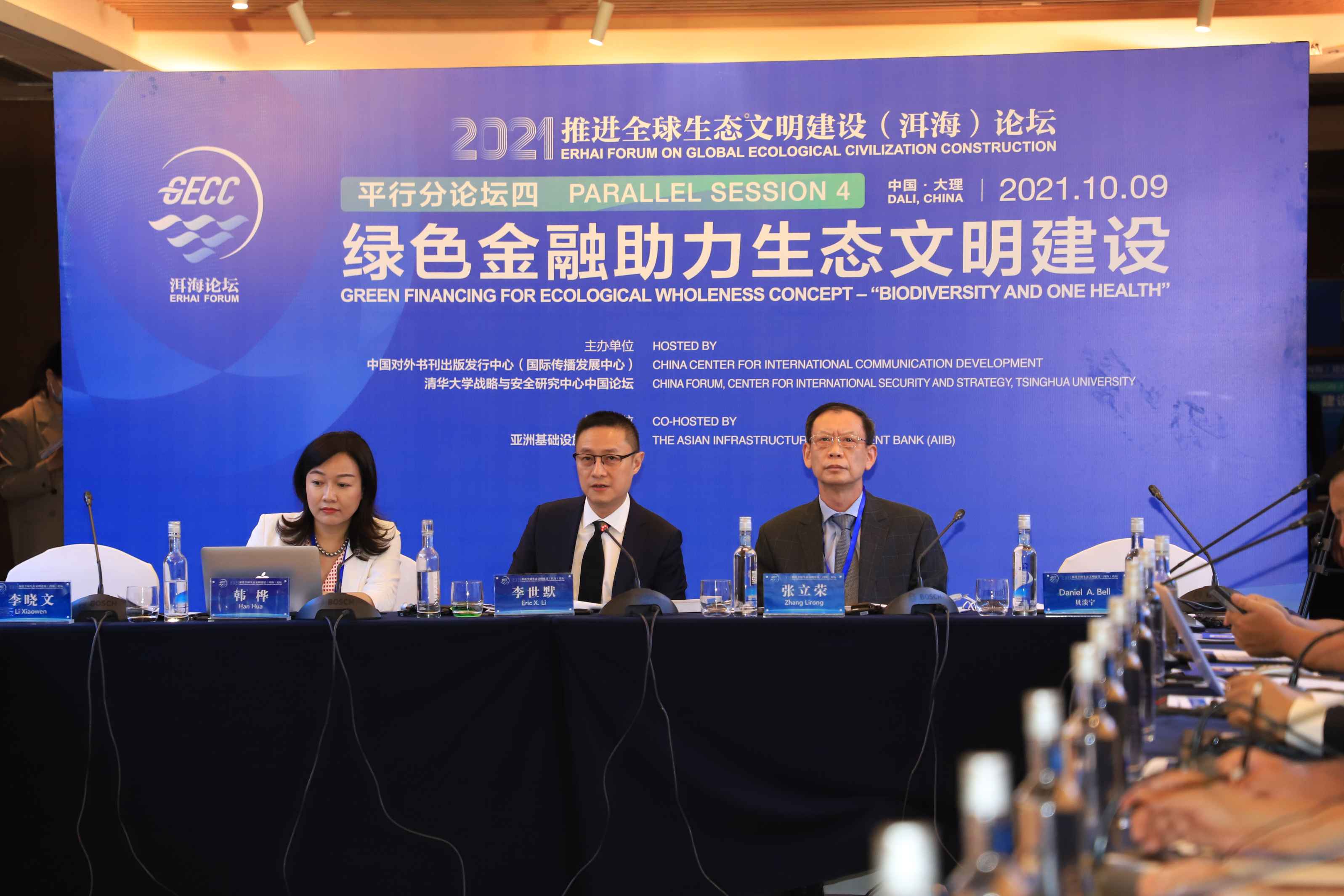In light of the forthcoming UN Biodiversity Conference (COP15), the 2021 Erhai Forum on Global Ecological Civilization Construction was held in Dali, Yunnan Province, China on October 9. Themed “Building an Ecological Civilization Together for a Beautiful Planet,” the forum brought together more than 300 guests from across the globe.
On the evening of October 9, a parallel session of the Erhai Forum entitled “Green Financing for Ecological Wholeness Concept—Biodiversity and One Health” was held in virtual and face-to-face formats. This sub-forum was hosted by the China Forum of Tsinghua University’s Center for International Security and Strategy and the China Center for International Communication Development, and co-hosted by the Asian Infrastructure Investment Bank (AIIB).
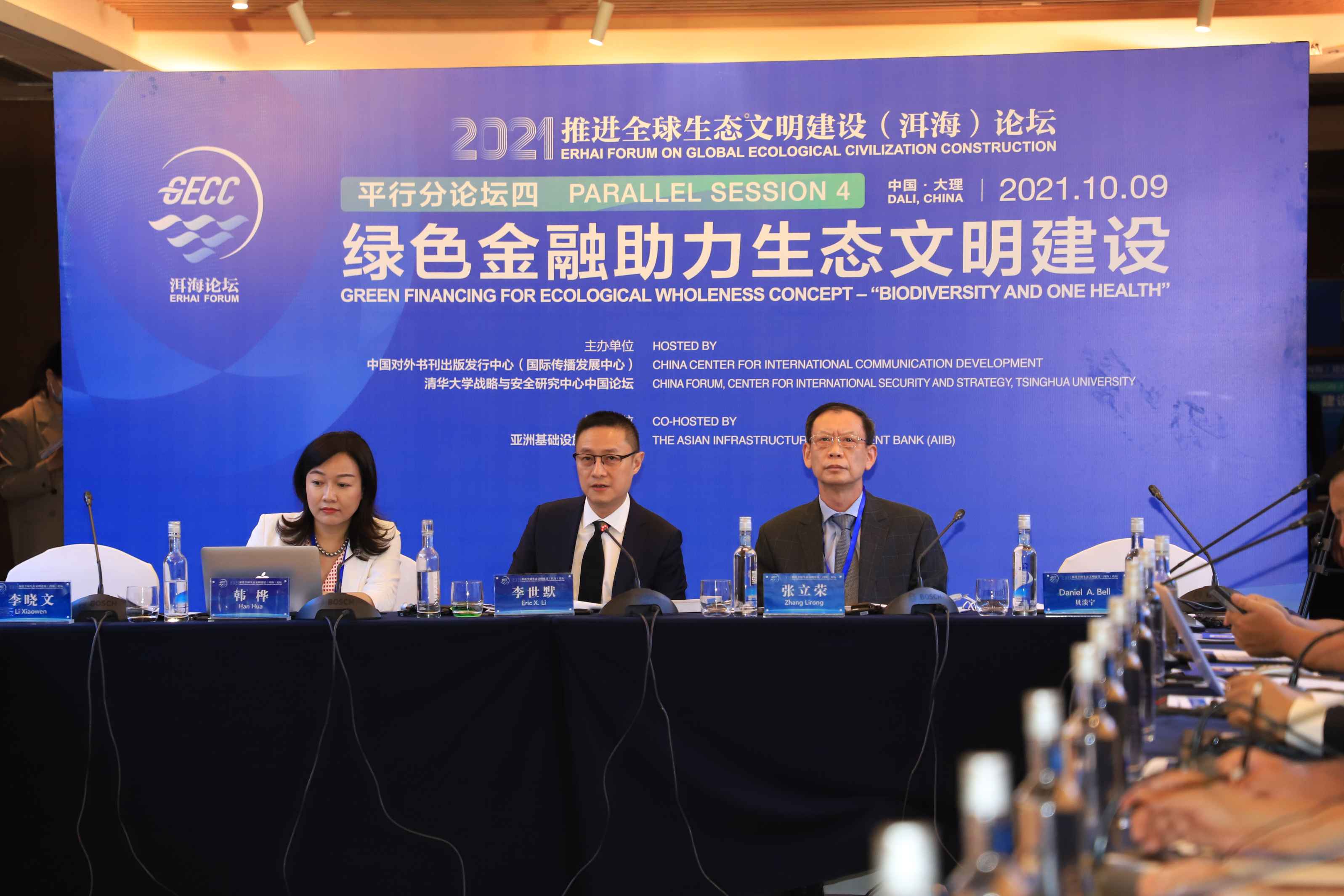
The session convened renowned experts and scholars in the fields of ecology, health and finance to share their insights into biodiversity, green finance and many other related issues, including Margaret Chan, Founding Dean of the Vanke School of Public Health at Tsinghua University and Emeritus Director General of the World Health Organization (WHO); Bernhard Schwartlander, former WHO Representative in China; Cao Heping, Professor at the School of Economics, Peking University; Alberto Ninio, General Counsel at AIIB; Yu Xiang, CISS Fellow and Senior Fellow at the China Construction Bank Academy; Adonai Herrera-Martinez, Director for Environment Funds at the European Bank for Reconstruction and Development (EBRD); Giovanni Ruta, Lead Environmental Economist at the World Bank; and Gerd Leipold, Program Director of Climate Transparency and former Executive Director of Greenpeace, among others.
The session featured two roundtable discussions entitled “Building Ecological Civilization— Ecological Wholeness and One Health” and “Green Financing for Ecological Civilization,” moderated respectively by Ms. Han Hua, Executive Committee member of the China Forum, and Mr. Zhang Lirong, Secretary-General of the China Forum.
Mr. Eric Li, Vice Chairman of the China Forum, kicked off the event with a keynote speech themed “Ecological Health and Economic Growth: Can we have both?” Taking the achievements of the city of Dali and the county of Pujiang in water pollution control and industrial development, he explained the idea of a more balanced, coordinated and inclusive growth proposed in China’s Global Development Initiative.
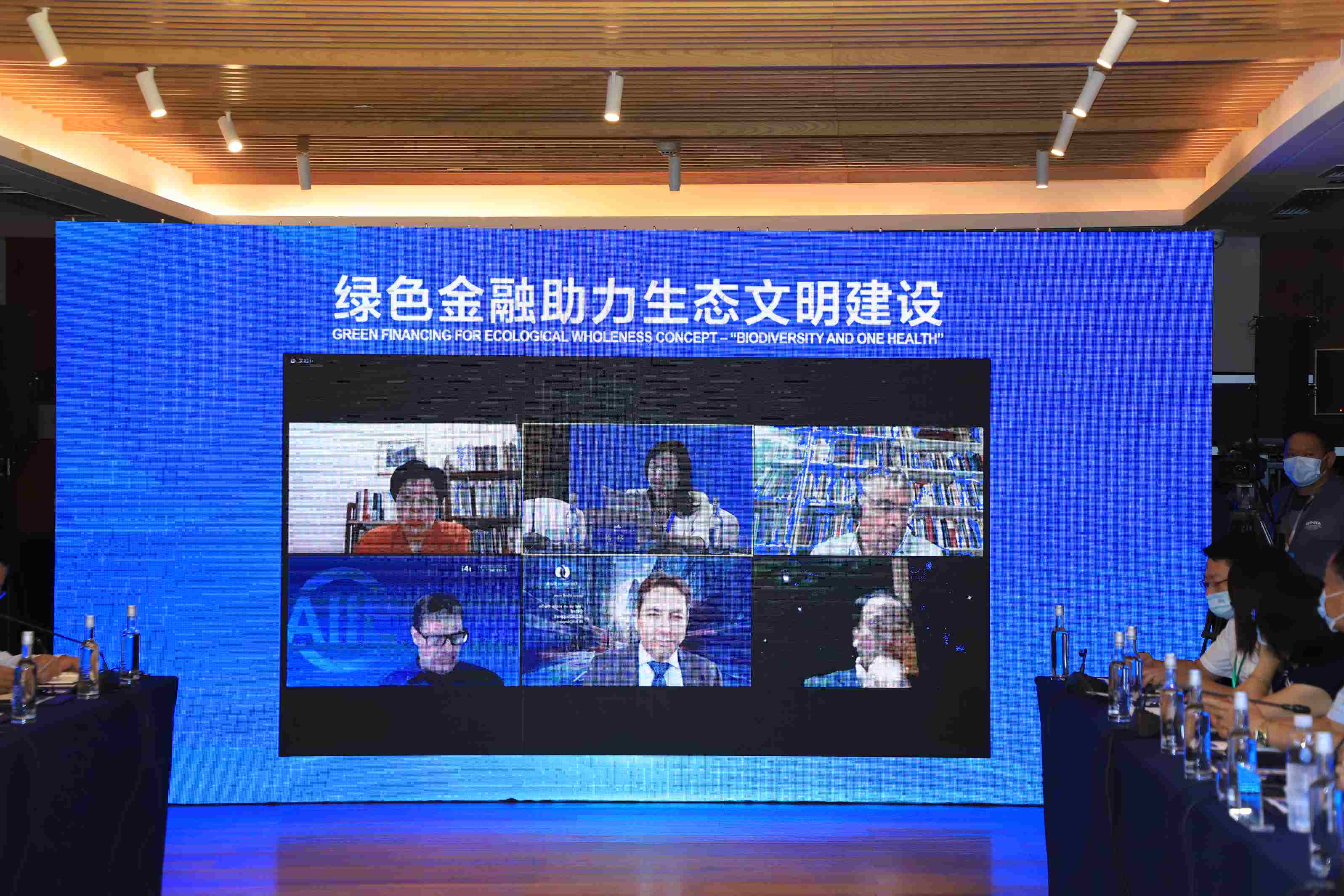
In Roundtable I, Dr. Margaret Chan highlighted the importance of ecological health and the ways to build it: it is a global challenge that requires a global solution and a healthy interaction between humans, animals and the planet.
Dr. Bernhard Schwartlander called for an integrated solution by bringing together multisectoral ideas as well as public health and ecological resources.
Professor Cao Heping shared his insights into biodiversity investment from an economic perspective, noting that the “investability” of biodiversity as a public good will significantly contribute to the Sustainable Development Goals.
According to Mr. Alberto Ninio, there are three lessons learned from past practices in green investment: First, focus more on the most important environmental areas; second, set indicators for the progress and governance effectiveness of these areas; and third, refine the indicators for green financing allocation and include more areas.
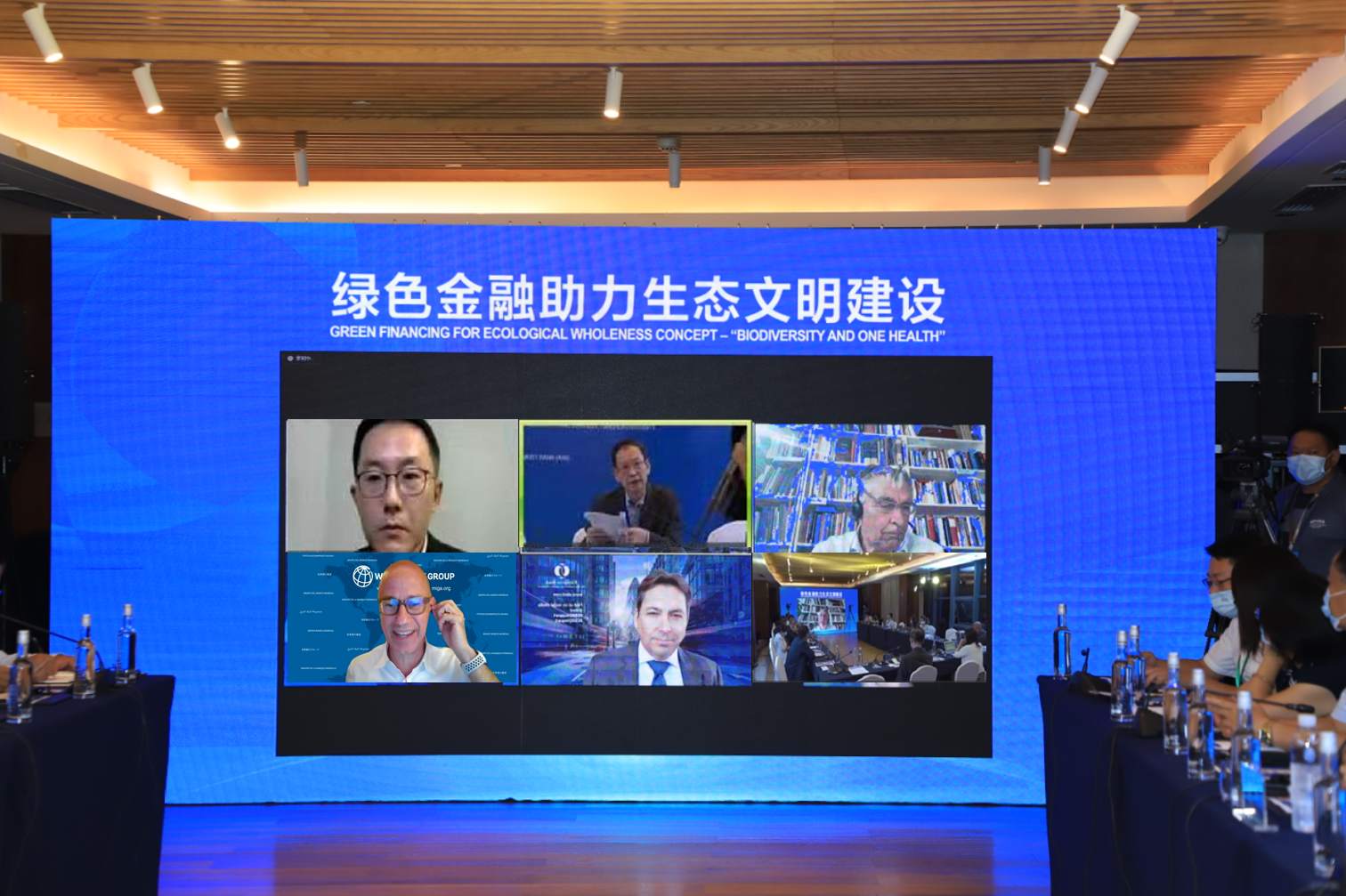
In Roundtable II, Professor Yu Xiang encouraged Chinese financial institutions to take a holistic approach to project financing, promote innovation in green financing and improve top-level and institutional designs, and prevent financial risks with relevant technological toolkits.
Then, Dr. Adonai Herrera-Martinez shared with the audience the working modalities, content, and assessment methods at EBRD in engaging in green economy governance as well as the challenges it faced.
Professor Giovanni Ruta expressed optimism regarding the business outlook for green bonds and their potential to promote ecological conservation.
According to Dr. Gerd Leipold, biodiversity financing is an ideal option for short-cycle, quick-return investments, whereas environmental protection financing is an area where yields are slower and requires greater market confidence and external risk control mechanisms to support its growth.
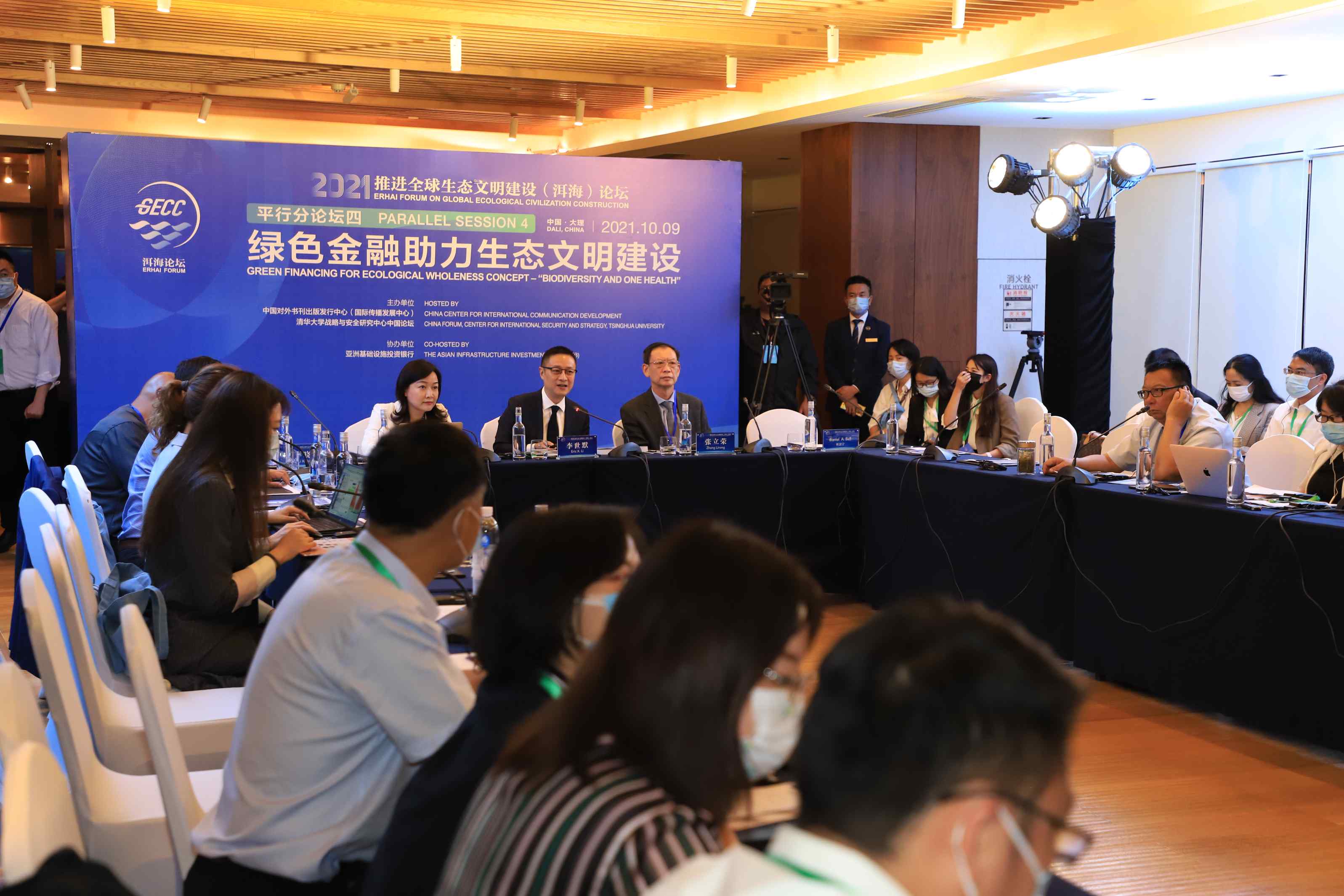
The experts shared their insights around the theme of the parallel session from different perspectives, breaking the silos between ecological protection, human health, climate change and many other sectors. The discussions served as a platform for the audience to gain a deeper understanding of the significance of green financing for environmental protection, climate governance and biodiversity protection, as well as its promising business prospects and potential contribution to the ecosystem and sustainable developmentt. The panel also proposed constructive policy recommendations for the development of green financing across various dimensions, such as top-level design, institutional frameworks, implementation approaches, responsibilities and accountabilities, standards and regulations, risk control, etc.
After the session, China Forum Secretary-General Zhang Lirong gave interviews to the media on how China cooperates with developing countries along the Belt and Road on green energy, how Yunnan Province cooperates with neighboring countries on biodiversity protection, as well as the challenges China faces in promoting its ideas and stories of ecological conservation internationally and solutions for that.
One Health is an approach to designing and implementing programs, policies, legislation and research with the goal of achieving optimal health outcomes recognizing the interconnection between people, animals, plants, and their shared environment. The One Health concept has been brought to the attention of a newly established high-level independent expert panel of the G20 as a response to the COVID-19 health crisis and included in the team’s plan for making the world better prepared to bring this pandemic and future outbreaks under control.

